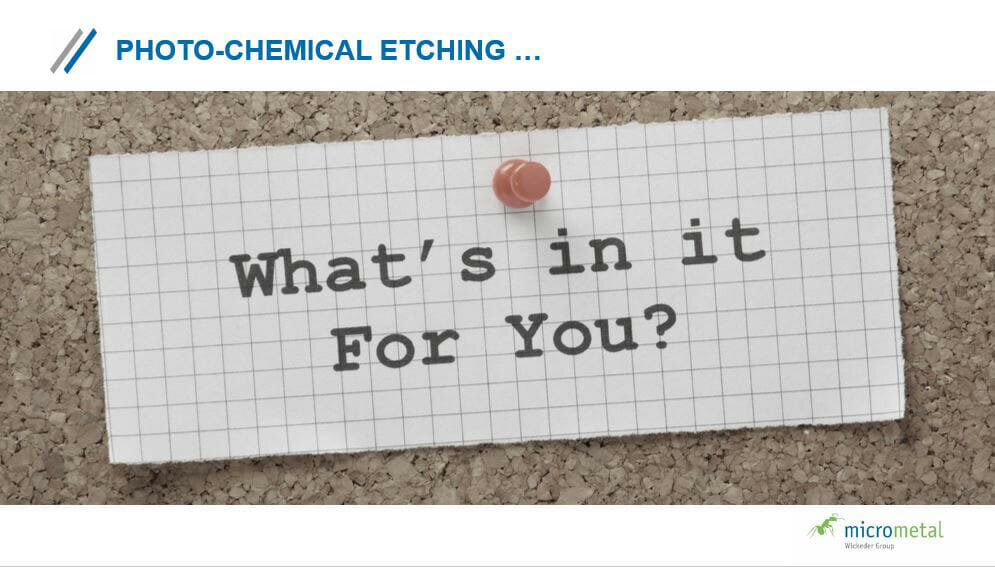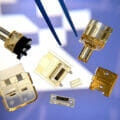(14th March 2022, Muellheim, Germany) micrometal GmbH (incorporating Etchform and HP Etch) is at the forefront of the evolution the photo-chemical etching (PCE) process, and today announces the launch of an on-demand webinar (WEBINAR LINK) which provides an invaluable resource for professionals that are looking for the most cost-effective, accurate, repeatable, and reliable supply of intricate, geometrically complex metal parts and components.
The process characteristics of PCE play to many of the goals that OEMs making precision metal parts require in today’s highly competitive markets. The process is able to produce intricate parts with extremely low tolerances unique among all alternative metal fabrication technologies.
The PCE process is further characterized by the fact that it produces parts without degrading material properties, stress- and burr-free parts being manufactured with no limitations when it comes to complexity. It can also be used on a broad range of metals and alloys, the “art” often being seen as the creation of different etchant chemistries that can manufacture parts from even difficult to process metals such as aluminium and titanium and hardened metals.
Jochen Kern, Head of Sales & Marketing at micrometal says, “The webinar is available in both English and German. The English version is presented by our Director of Sales, Karl Martinson and essentially analyses the advantages and possibilities that PCE presents, the way the process works, key application areas, and what it is that micrometal can deliver that other photo etching suppliers cannot. Attendees can select the date and time that they wish to access the webinar, and there is the facility to ask questions and receive answer specific to particular applications.”
micrometal GmbH has developed unique and proprietary refinements to the PCE process which out-competes alternatives in terms of control, accuracy, repeatability, speed, and cost, while at the same time producing parts with no stress-related material degradation or burrs.
PCE not only copes well with difficult geometries, it also allows design engineers enormous flexibility, facilitating the adjustment of designs right up to the point of manufacture due to the use of digital film or glass tooling. Such tooling is hugely less expensive and much faster to produce and alter than the hard steel tools needed for punching and stamping, making the process ideal for prototyping (as well as low, medium, and high volume runs).
Also, as the tooling is transferred to metal through a contact printing process, there is no tool wear ensuring that the first part produced is identical to the millionth. When using stamping, part complexity adds cost, but PCE is unaffected by the level of tool complexity, and it makes no difference in terms of costs or lead-time how complex the geometry of the part is and therefore the complexity of the digital film or glass tooling.
Kern concludes, “We are delighted to be able to announce the availability of our webinar, as it allows us to describe how compelling PCE is as a modern metal fabrication process. micrometal has evolved the already precise PCE technology, and has optimized the process so that today it offers levels of precision and tolerance attainment impossible using traditional PCE or any other more traditional technologies. Please register for the free webinar today and make the first step towards engaging with a technology and an expert in the PCE space that can stimulate innovation in your product development process.”








